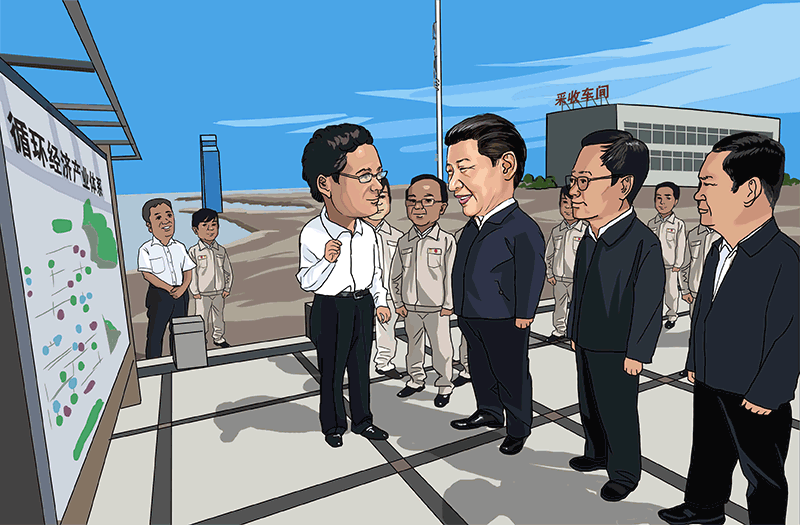







By Song Xiongwei, associate Professor, department of politics, China National School of Administration;comics drawn by Liao Tingting

On August 22, Chinese President Xi Jinping arrived in Golmud, a city in Haixi Mongolian and Tibetan Autonomous Prefecture, northwest China's Qinghai Province, which stands at an average altitude of 2800-meters. At a village on the Yangtze River's origin, Xi inspected ecological projects that have benefited ethnic minority communities. In Qarhan Salt Lake, Xi learned about production and operations, industrial technology upgrades, bio-industry development with plateau characteristics, along with new materials including magnesium alloy cases.
He said local administrations should enhance natural resources strategies to strengthen top-level design, make full use of recycling, to play an exemplary role for the state. The idea of "The whole country is a single entity" requires development and utilization to protect the environment.
Ecology is the highlight of Beautiful Qinghai, a province, known as "the Chinese water tower" where the Yangtze River, Yellow River and Lancang River originate. The province can be categorized into distinct regions: western region, highlands area, ethnic minority area, impoverished region and ecologically-fragile zone.
It's necessary to build a strong ecological barrier and moderately prosperous society. Green development and circular economy are the only way for Qinghai's development. During 2016 Annual Sessions of the NPC (China's top legislature) & CPPCC (China’s top advisory body), Xi called for Qinghai to protect its three rivers for a healthy ecology. Beijing is adhering to the "the whole country as a single entity," supporting ecological protections and recycling economy to promote fundamental changes in the use of natural resources. Such measures can benefit the livelihoods of our society. We should remember that the mountains and rivers are valuable treasures.